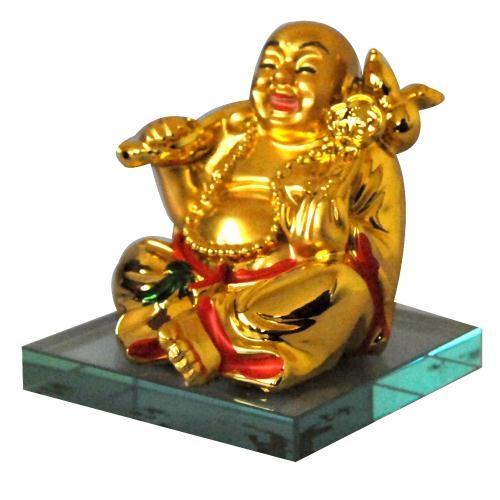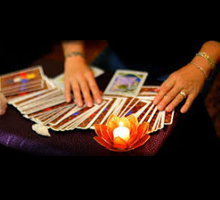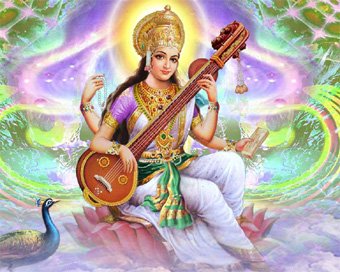The beauty of Indian culture perhaps, lies in the fact that each day of the year is held special for some auspicious reason or the other. Naturally, rituals are followed and people celebrate and rejoice to mark the occasion. One such auspicious occasion of importance is the ‘Saraswati Utsav’. It is celebrated on the Magha month of the Shukla Panchami (5th day of the fortnight following the new moon during Spring) and is also known as Vasant Panchami. As Devi Saraswati is associated with knowledge and learning, this day is celebrated by students across the country with much gaiety and fervor. The youth, especially the students, offer ‘puja’ to the Devi and invoke her blessings in order to gain true knowledge and become successful in their academic field. Musicians and artists too, show their reverence to goddess Saraswati and seek her blessings as she is considered to be the patron deity of music and arts. Let us know about the essence of this festival and the importance of Devi Saraswati in Indian mythology.
♦Devi Saraswati- an embodiment of beauty and learning
Bhagawati Saraswati is the deity of divine knowledge, intellect, learning, creativity, arts, consciousness and eloquence. It is believed that she invented Sanskrit- the scholarly language. She is the one from whom the knowledge of scriptures is derived. The Hindus believe that a man’s ability to speak, sing melodious tunes, absorb knowledge or create a thing is possible only by the power of the blessings of Ma Saraswati. With her blessings even a mute can utter words and an ordinary man can compose extraordinary verses. Such is the power of Ma Saraswati. The learned men seek her blessings to gain wisdom and enlighten their minds to reach their desired goal of life.
According to Indian mythology, at the beginning of creation, Adyashakti divided herself into five parts- Radha, Padma, Savitri, Durga and Saraswati and emerged from different parts of Shree Krishna’s body. As soon as the fifth part emerged, Shree Krishna gave her the name of ‘Saraswati’. In ‘Shreemaddevibhagwat’ and ‘Shreedurgasaptashati’ Adyashakti dividing herself into three forms is depicted. These three forms are famous as Mahakali, Mahalakshmi and Mahasaraswati.
Devi Saraswati is a representation of beauty, poise, serenity, intellect, peace and purity. She is known by many names of which Vak, Vaani, Gih, Giri, Bhasha, Sharda, Vacha, Dhishwari, Brahmi, Gow, Somlata, Vakdevi and Vakdevta are popular. The magnificent powers of Devi Saraswati are aptly described in Rigveda. According to the verses of this scripture, Vakdevi is the provider of exceptional virtues. She is a protector of the gods and is responsible for the creation of this universe. She is the one who infuses the emotions of patriotism and selfless work for the nation in the minds of human beings. It is stated that if a man devotedly worships Devi Saraswati and pleases her then he is sure to experience ultimate happiness and pleasure of this world. With her blessings, a man can become a genius in his field of work and create a marvel.
♦Rituals of the festival
According to the Hindu calendar, the Panchami of Shuklapaksha of the Magh month is the day designated for worshipping Devi Saraswati. Vasant Panchami is considered as the birthday of this powerful deity. Therefore, this day is also known as Vagishwari Jayanti or Shreepanchami. On this day, people follow rituals and worship goddess Saraswati with all their devotion. Apart from this particular day, goddess Saraswati is also invoked on the day when young children are introduced to the world of learning and commence their formal academic life. In fact, Saraswati Puja, Akshay Trithiya and Vijaya Dashami have a unique significance. These three days are considered extremely favourable for commencing any work or for any auspicious event to be held.
Nowadays, Saraswati Puja is held in massive grandeur by installing an idol of the goddess at temporary structures (pandal) built in a public place for the purpose of offering ‘puja’ to the deity. However, in ancient scriptures, it is stated that the deity should be worshipped at home. The rituals to be followed on this auspicious day are as mentioned below-
For a devotee of Devi Saraswati, rituals start a day prior to Shukla Panchami that is on the Magh Shukla Chaturthi. On this day, he should practice restrain and follow the norms for the day. On the day of Magh Shukla Panchami, that is the day of Saraswati Puja, the devotee should wake up early morning and get ready for the day. After bathing and wearing clean clothes, it is time for him to install a ‘kalash’ (water pot) and start the rituals for the ‘puja’. After offering prayers to Lord Ganesh, the ‘kalash’ should be installed while chanting Vedic prayers and invoking Devi Saraswati. After this, all the things required for the ‘puja’ should be offered one by one to the deity by chanting the mantra “Shreeng Hreeng Saraswatyai Swaha”. It should be followed by offering an ‘aarti’ ( a ritual of waving lamps in circular motion in front of the deity) . During the puja, the following mantra should be chanted:
“Saraswating Shuklavarnang Sasmitang Sumanoharam Kotichandraprabhamushtapushtashreeyuktavigraham
Vanhishuddhang Shukaadhaanang Veenapustakdhaarinim
Ratnasaarendranirmannavabhushanbhushitam Supujitang Surganaibrahmavishnushivadivi Vande Bhaktya Vandita Cha Munindramanumanavai”
It is believed that Devi Saraswati also resides in all the objects related to study, music and art such as pen, notebooks, pencils, musical instruments and art tools and hence these should be kept at the feet of the idol and worshipped on the day of the festival. After the ‘puja’ is over, the ‘bhog’ or the food offered to the deity should be taken as ‘prasad’. As Devi Saraswati is associated with white colour and represents Sattwaguna, all the things offered, as a part of ritual, to the goddess should also be white in colour. Hence, white foods and objects such as milk, curd, butter, white sesame, sugarcane, white sandalwood, white flowers, white attire (clothes made of silk or cotton), white jewellery (silver jewellery), radish, white colored sweets(sweets made of khoyakheer or condensed milk), grains of white rice, clarified butter (ghee), coconut and different varieties of white fruits are the appropriate offerings for the deity.
Apart from following the rituals on the particular day of the festival, the devotees need to follow certain rituals always- They should show reverence towards all the Hindu scriptures such as Veda, Purana, Ramayana, Geeta and should consider them as the symbolic representation of goddess Saraswati. These scriptures should be kept in a clean place and should be touched when one is clean and pure in both body and mind. They should take care that these books are never carelessly thrown or neglected in any manner. A person can only become a true devotee of Devi Saraswati by following these rituals in the best manner.
♦The power of Saraswati Mantra (hymn)
In Devibhagwat and Brahmavaivartapuran, it is described that during the ancient age, Shreemannarayanbhagwan had told the Saraswati mantra (hymn) to Valmiki. By chanting that mantra or hymn, Valmiki realized his poetic talents. In fact, learned saints like Maharshi Valmiki, Vyas, Vashistha, Vishwamitra and Shainik empowered themselves with pure knowledge by chanting special mantras or hymns of Saraswati. Poet Kaalidas worshipped Devi Saraswati in the form of Kaali and got recognition and fame in the whole world. In Vedas, goddess Saraswati is described as a water deity. Goswamiji rightly said that both Ganga and Saraswati rivers are same in nature. While one cleanses your sins and leads you to purity, the other cleanses ignorance and leads you to the bright world of knowledge and liberation.
♦A day of celebration and fun
Students are in their best form on this day of festivity. They wait eagerly for this day as unlike other days, this is the only time of the year when they can officially skip their studies. Hence, they happily take a break from studies and participate in the celebration without the fear of being reprimanded by the elders.
Young boys and girls dressed in traditional clothes actively participate in the rituals of the festival and offer ‘pushpanjali’ (an offering of flowers along with mantras to the deity). They seek blessings from the deity to empower them with knowledge and help them realize their innate talents. Saraswati Puja is celebrated with the same zeal and spirit at home as in educational institutions. In many schools and colleges, students not only organize the ‘puja’ but also a cultural event in which all the students participate and showcase their talents. After the event, it is time for eating ‘prasad’ of piping hot ‘khichdi’.
The epitome of grace and beauty known as Saraswati who is dressed in white, with four hands, riding on a swan or seated on a lotus fills the lives of her devotees with unlimited wealth- the wealth of knowledge. Without this wealth, even a rich person can turn a pauper within no time.
Dr. Surendra Kapoor








